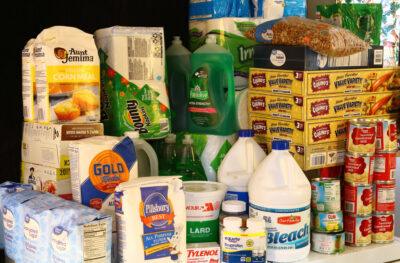How Cities Could Become Unliveable If The Grid Goes Down

Modern cities are marvels of human engineering, teeming with millions of people and powered by a constant electricity supply. This electrical lifeblood drives transportation systems, powers hospitals, ensures water and food distribution, and keeps the lights on for homes and businesses.
But what happens when the grid fails, plunging a city into darkness for an extended period? The cascading societal impacts could render urban areas unliveable, forcing residents to confront challenges that few are prepared for.
This article examines how a prolonged power outage would disrupt food supply chains, public safety, and healthcare in urban areas. It also explores the stark contrast between urban and off-grid survival, offering insights into how decentralization and self-reliance could mitigate risks in such a crisis.
Food Supply Chains: A Rapidly Unraveling Lifeline
Cities rely on complex and tightly managed food supply chains to sustain their populations. Grocery stores and markets operate on a “just-in-time” inventory system, meaning they keep only a few days’ worth of stock on hand to minimize storage costs. When the power goes out, this delicate balance is immediately threatened.
Immediate Impacts
- Refrigeration Failures: Perishable goods such as meat, dairy, and produce spoil within hours to days, leaving shelves bare. This means a sudden loss of access to fresh, nutritious food for residents.
- Transportation Halts: Fuel pumps at gas stations rely on electricity, which disrupts the trucks that transport food into the city. Without restocking, food shortages become critical within days.
Long-Term Consequences
As food supplies dwindle, desperation sets in. People may resort to looting, and those without resources or mobility will face hunger and malnutrition. Urban populations, which typically lack the means to grow their own food, are especially vulnerable compared to rural residents who may have gardens or access to local farms.
Safety And Order in the Dark
When the lights go out, so do many systems that keep cities safe. Police stations, emergency dispatch centers, and surveillance systems are all dependent on electricity to function efficiently.
Rising Crime and Civil Unrest
- Opportunity for Criminals: Darkness and disabled security systems create looting, burglary, and vandalism opportunities.
- Civil Unrest: As supplies like food and water run out, tensions escalate, leading to riots and civil unrest. Law enforcement, stretched thin without functioning communication systems, may struggle to maintain order.
The strain on Emergency Services
Without power, first responders face significant challenges. Fuel shortages limit the mobility of emergency vehicles, and hospitals are quickly overwhelmed by the increased demand for care and limited resources.
Healthcare in Crisis
Hospitals are among the most critical institutions during any crisis, yet they are also heavily reliant on the grid. Backup generators can provide short-term relief, but these systems are not designed to sustain entire operations indefinitely.
Challenges for Hospitals
- Equipment Failures: Life-saving devices like ventilators, dialysis machines, and advanced diagnostic tools depend on electricity. When the power fails, hospitals must prioritize resources, often leading to difficult decisions about which patients receive care.
- Medication Storage: Many essential medications, such as insulin and specific vaccines, require refrigeration. A prolonged outage can render these medications unusable, putting lives at risk.
- Overcrowding: Hospitals quickly become overwhelmed as people seek treatment for injuries, illnesses, and complications arising from poor sanitation and water shortages.
Public Health Risks
The breakdown of water and sewage systems leads to unsanitary conditions, increasing the risk of disease outbreaks such as cholera or dysentery. Combined with a lack of healthcare resources, this will further deepen any public health crisis.
Urban Survival Challenges vs. Rural Resilience
The stark differences between urban and rural living become evident in the face of a prolonged blackout. Cities, with their dense populations and reliance on centralized infrastructure, are far less equipped to handle grid failures than rural or off-grid areas.
Big Urban Challenges
- High Population Density: With millions competing for limited resources, scarcity, and conflict arise quickly.
- Dependence on Centralized Systems: Urban residents rely on citywide water distribution, food supply chains, and public transit, all of which fail without power.
- Limited Storage and Space: Apartments and small homes often lack the space for stockpiling supplies, making long-term survival difficult.
Rural or Off-Grid Advantages
- Decentralized Systems: Many rural residents have access to private wells, septic systems, and backup power sources like generators or solar panels.
- Self-Sufficiency: Rural households are more likely to grow food, keep livestock, or have local sources for fresh produce.
- Community Support: Smaller, tight-knit communities often come together during crises, sharing resources and skills.

Urban resilience starts with preparation and self-reliance: stockpiling essentials, investing in backup power, and building strong community networks are vital for surviving prolonged blackouts.
Preparing for the Worst: Strategies for Resilience
For urban dwellers, surviving a prolonged blackout requires preparation and adaptability. Here are some practical strategies:
Stockpile Essentials
- Keep a supply of non-perishable food, bottled water, and essential medications to last at least two weeks.
- Invest in long-term food storage options, such as freeze-dried meals.
Water Independence
- Store water in food-grade containers and rotate the supply regularly.
- Invest in water purification tools like filters, tablets, or portable desalination devices.
Backup Power Solutions
- Consider portable solar panels or a generator to power essential devices like refrigerators or medical equipment.
- Use rechargeable batteries and solar-powered chargers for electronics.
Community Networking
- Build relationships with neighbors to pool resources and skills during a crisis.
- Join local preparedness groups or workshops to gain knowledge and share strategies.
Urban Gardening
- Even small spaces can support container gardening for growing herbs and vegetables, providing a supplementary food source.
Facing the Fragility of Urban Life
Cities are hubs of innovation and opportunity but are also deeply dependent on a functioning power grid. When the grid fails, the systems that sustain urban life… food supply, public safety, and healthcare…begin to unravel. The cascading effects can quickly render cities unlivable, leaving millions vulnerable to hunger, illness, and chaos.
For those living in urban areas, the key to survival lies in preparation and self-reliance. Individuals can increase their resilience in the face of prolonged blackouts by stockpiling essentials, investing in backup systems, and building community networks. As the vulnerabilities of modern infrastructure become more apparent, embracing these strategies is no longer optional… it’s essential for navigating an uncertain future.
The post How Cities Could Become Unliveable If The Grid Goes Down appeared first on Off The Grid News.
Source: https://www.offthegridnews.com/grid-threats/how-cities-could-become-unliveable-if-the-grid-goes-down/
Anyone can join.
Anyone can contribute.
Anyone can become informed about their world.
"United We Stand" Click Here To Create Your Personal Citizen Journalist Account Today, Be Sure To Invite Your Friends.
Before It’s News® is a community of individuals who report on what’s going on around them, from all around the world. Anyone can join. Anyone can contribute. Anyone can become informed about their world. "United We Stand" Click Here To Create Your Personal Citizen Journalist Account Today, Be Sure To Invite Your Friends.
LION'S MANE PRODUCT
Try Our Lion’s Mane WHOLE MIND Nootropic Blend 60 Capsules
Mushrooms are having a moment. One fabulous fungus in particular, lion’s mane, may help improve memory, depression and anxiety symptoms. They are also an excellent source of nutrients that show promise as a therapy for dementia, and other neurodegenerative diseases. If you’re living with anxiety or depression, you may be curious about all the therapy options out there — including the natural ones.Our Lion’s Mane WHOLE MIND Nootropic Blend has been formulated to utilize the potency of Lion’s mane but also include the benefits of four other Highly Beneficial Mushrooms. Synergistically, they work together to Build your health through improving cognitive function and immunity regardless of your age. Our Nootropic not only improves your Cognitive Function and Activates your Immune System, but it benefits growth of Essential Gut Flora, further enhancing your Vitality.
Our Formula includes: Lion’s Mane Mushrooms which Increase Brain Power through nerve growth, lessen anxiety, reduce depression, and improve concentration. Its an excellent adaptogen, promotes sleep and improves immunity. Shiitake Mushrooms which Fight cancer cells and infectious disease, boost the immune system, promotes brain function, and serves as a source of B vitamins. Maitake Mushrooms which regulate blood sugar levels of diabetics, reduce hypertension and boosts the immune system. Reishi Mushrooms which Fight inflammation, liver disease, fatigue, tumor growth and cancer. They Improve skin disorders and soothes digestive problems, stomach ulcers and leaky gut syndrome. Chaga Mushrooms which have anti-aging effects, boost immune function, improve stamina and athletic performance, even act as a natural aphrodisiac, fighting diabetes and improving liver function. Try Our Lion’s Mane WHOLE MIND Nootropic Blend 60 Capsules Today. Be 100% Satisfied or Receive a Full Money Back Guarantee. Order Yours Today by Following This Link.






